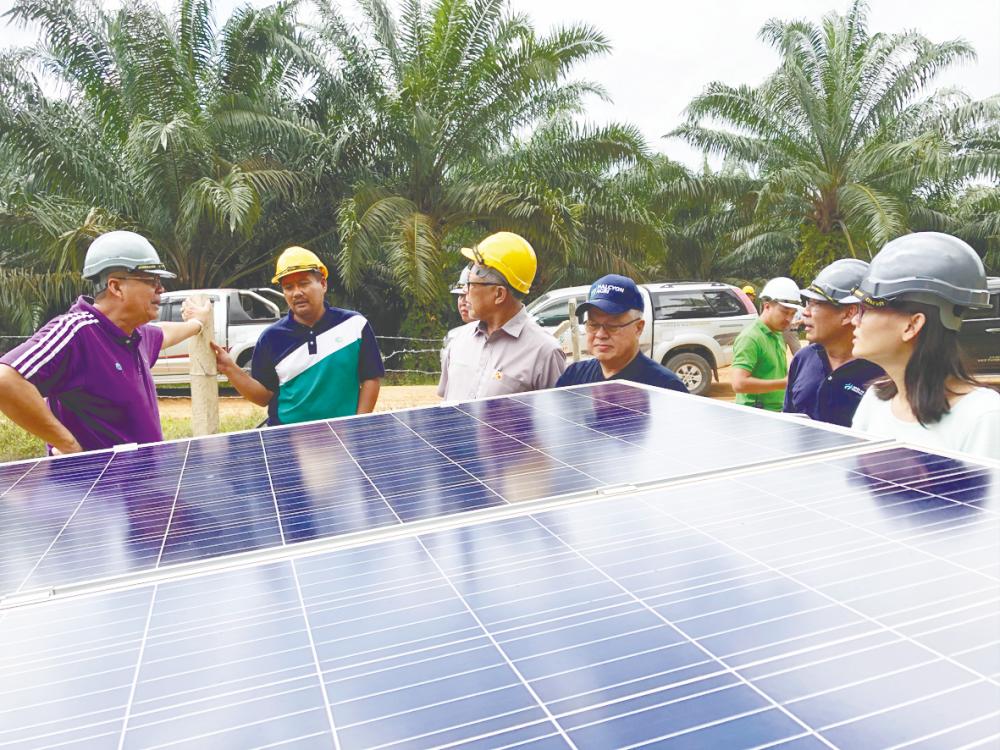MANY have read the coverage of palm oil in the business press recently, and I want to deal with one aspect of it here, a point I have valued highly.
It is about the need to increase the yield of palm oil per hectare. With that, an estate can get more oil to sell from the same area of land. All in the industry know this.
Datuk Carl Bek-Nielsen of United Plantations Berhad had said it is a silver bullet that can add to income and reduce costs of production per tonne of oil.
The palm oil yield in United Plantations is above 6.0 tonnes per hectare, which is about 50% higher than those from other plantation companies, although many are trying to catch up.
That aim had been in my mind when I was working in the oil palm plantations. It was a delight to plan from the start how it could be achieved. I could have a pleasant walk in the morning in the area of young palms, selected from the best seedlings grown from seeds bought from selected producers, and planted at 136 palms per hectare.
As I waded over the legume cover that kept the weed down and the soil cool, I knew that each palm was like a bank account that gave an income. Before three years old, the harvesting paths are ready for workers to come and harvest the palms, which would fruit well for over twenty years. I checked that the palm circles were clean. Workers applied fertilisers evenly so the palm could get enough food. The rain would come, except for some weeks in the dry months.
One company is working hard to get a constant supply of water to the palms. It pumps water from a stream up the slopes and lets it run down the rows of palms. The yield had gone up dramatically. The pumps use solar power.
The place I visited, Bukit Keramat Estate, is in Kemayan, Pahang. The managing director Mohd Damanhuri Mohd Jamli has said that it had taken him and his team some time to get it right. For some years he had also added a technique of ploughing lightly so the water settles into the soil.
Of course, getting the yield higher is not only about looking after the plants. A big aspect is to get workers so the job gets done on time. As many managers can be quick to say, this cannot happen if the approval is slow in getting workers from abroad. They train the new workers, see they get to work on time and give the right equipment. They help each worker to raise his output and his income. They would single out the best performer and make a show of it.
Hanging on to the workers is an art. The team will check that they have decent housing, must be fit and can buy food at reasonable prices, so they can eat well. Contract workers should get the same attention as direct employees. Today, workers have handphones so they get news of other estates and managers who care about their income and their welfare, and they may choose to leave. That could happen before the crop goes through a peak period.
With worker shortage, this is often the time when harvesting is not completed. After many years of tending to the palms, it is a shame to see the bunches being left to rot. Usually, you can see this along the boundaries. This is a loss to the owners and the country.
For me, it has always been fun to walk along the boundaries, and I could do all I set out to do for the day. But today managers too have their problems and are often diverted from their tasks, with more forms to fill to meet the needs of head office departments, leaving little time to check in the field.
However, many managers are still lucky to be left to do their jobs, especially in companies that are majority-owned by families. Often they would be selected on merit, trained and watched for years. The owners know how to reward them. They keep the good managers, and know the value of continuity.
I marvel at the way they can touch the planter and family’s hearts so that they would not leave. But the owners would also remember the adage by Warren Buffet, who said: “In looking for people to hire, you look for three qualities: integrity, intelligence and energy. And if they don’t have the first, the other two will kill you.”
Buffett may not have visited plantations, but it sounds like he is talking about the security of company assets such as fruit bunches, palm oil, palm kernel or fertiliser. Leakages can happen when control is lax. Usually, when the owners come to know, action can be swift.
The planter can raise the yield when he has a strong team. He sees that the members at each level can act promptly on their tasks. They see that harvesters cut only ripe bunches.
I used to check the bunches that had been cut, and then walk along the rows of palms and try to spot any loose fruits left behind. Ripe bunches and loose fruit have the most oil. With a higher oil yield, the income allows for improvements to roads and the repainting of houses to make them look bright and cheerful.
Part of the extra income can allow for research work to raise higher-yielding palms through breeding or cloning by tissue culture. In harvesting, creative efforts are needed to find a simpler way so that a worker can cut more bunches per day, where even in the peak periods the recovery of crops is complete.
All in all, the steps add up to increased yield. They are not easy but it makes a planter’s day busy and exciting.
The writer has extensive experience in the management of oil palm plantations. Comments: letters@thesundaily.com









